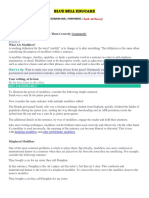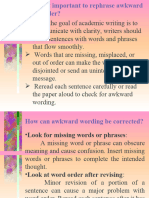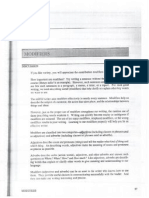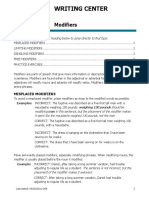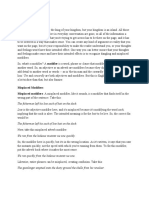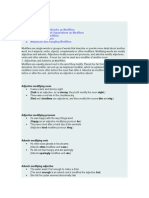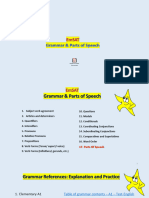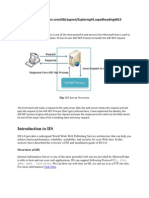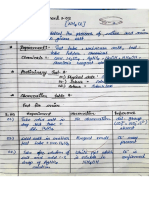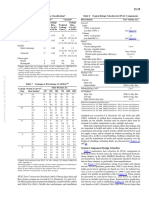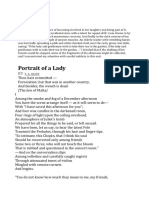0% found this document useful (0 votes)
46 views41 pagesModification in Language Communication
The document discusses the concept of modifiers in language, explaining their role in adding detail and clarity to words, phrases, or clauses. It outlines different types of modifiers, their positions in sentences, and common errors associated with their use, such as misplaced and dangling modifiers. The presentation concludes with examples to illustrate these concepts effectively.
Uploaded by
dundayohane70Copyright
© © All Rights Reserved
We take content rights seriously. If you suspect this is your content, claim it here.
Available Formats
Download as PPTX, PDF, TXT or read online on Scribd
0% found this document useful (0 votes)
46 views41 pagesModification in Language Communication
The document discusses the concept of modifiers in language, explaining their role in adding detail and clarity to words, phrases, or clauses. It outlines different types of modifiers, their positions in sentences, and common errors associated with their use, such as misplaced and dangling modifiers. The presentation concludes with examples to illustrate these concepts effectively.
Uploaded by
dundayohane70Copyright
© © All Rights Reserved
We take content rights seriously. If you suspect this is your content, claim it here.
Available Formats
Download as PPTX, PDF, TXT or read online on Scribd
/ 41
